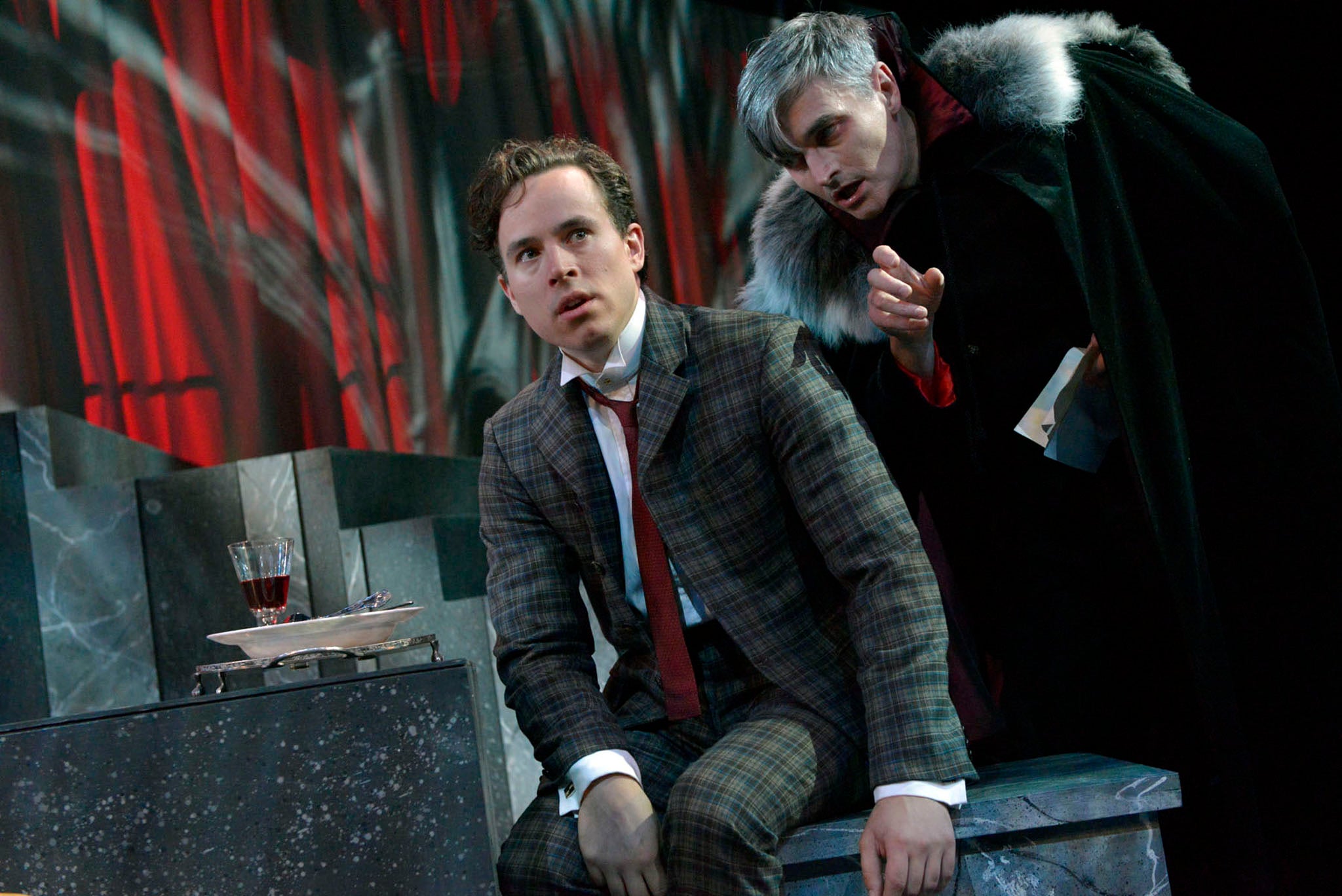Dracula, Theatre by the Lake, Keswick - review
A rich, complex and intelligent reading of Bram Stoker's classic

Your support helps us to tell the story
From reproductive rights to climate change to Big Tech, The Independent is on the ground when the story is developing. Whether it's investigating the financials of Elon Musk's pro-Trump PAC or producing our latest documentary, 'The A Word', which shines a light on the American women fighting for reproductive rights, we know how important it is to parse out the facts from the messaging.
At such a critical moment in US history, we need reporters on the ground. Your donation allows us to keep sending journalists to speak to both sides of the story.
The Independent is trusted by Americans across the entire political spectrum. And unlike many other quality news outlets, we choose not to lock Americans out of our reporting and analysis with paywalls. We believe quality journalism should be available to everyone, paid for by those who can afford it.
Your support makes all the difference.Raw sexual energy, and society’s need to curb its wilder excrescences, are themes which bubble constantly just below the surface in the myth of the vampire. But in Liz Lochhead’s feminist Dracula the sexual politics implicit in the original become explicit and are held up for scrutiny.
Bram Stoker wrote the novel in 1897, at the high point of a Victorian industrial imperialism which was cocksure about its colonies, its science and its manhood.
Like Mary Shelley’s earlier Frankenstein it raised questions about the ethical and psychological limitations of those certainties. There is more in heaven and earth than is dreamt of in your psychology, says one character in Lochhead’s Dracula, speaking to a doctor in a Victorian madhouse just after the vampire aristocrat has moved in next door.
Lochhead is a poet. She is now the Makar, the Scots equivalent of the poet laureate. Here she deftly weaves a tapestry of contrasts: day and night, sane and mad, life and death, heart and head – and female and male. Martin Johns’ set reflects the beautiful economy of her metaphors: the surging sexual urges of a young woman on a swing; the constantly rising and falling plinth which serves as a bed, a coffin and a grave. A wind-ruffled backcloth conjures clouds, waves, castle towers, vaulted arches and snarling wolves.
Among an accomplished repertory cast, Jennifer English captures a wild teenage desire of the first victim Lucy. Henry Devas makes a convincing transition from lustful mens’-room braggard to quivering masochistic victim of the vampiric weird sisters. Cate Cammack, as the sexually-constrained Mina, and Bryn Holding, as the upright Seward, both wrestle with the boundaries between love and duty – and offer insights into how social constraints on sexuality can be purposeful rather than oppressive. Matthew Vaughan has both menace and a mesmeric charm as a lupine Dracula.
Lochhead’s is rich, complex and intelligent reading. She creates an additional character, Florrie, the maid, as the common sense equivalent of Dr Seward’s scientific scepticism – and has both shaken to the core by events which are not just supernatural but surge from the complexity of the human psyche. Lochhead also moves the lunatic Renfield centre stage, literally, in a human equivalent of a bird cage, in which Liam Smith’s acrobatic madman quotes Shakespeare’s Poor Tom and sometimes talks more sense than do the supposedly sane.
The play has great psychological drive in the first half. As with so many forms of human endeavour this Dracula is better at raising questions, on the limitations of science, than it is at providing answers or alternatives. It’s hard to suspend disbelief at the garlic, mirrors and crucifixes. After the interval the drama becomes symbolic and expressionistic. Heart and head go on separate journeys. But Lochhead makes a virtue of that in a final scene in which husband and wife struggle to forgive the attractions each has had to the dark sexuality of the vampires. Myth, she shows, penetrates deeper into the human imagination than we might suppose.
Dracula continues in repertoire till November.
Join our commenting forum
Join thought-provoking conversations, follow other Independent readers and see their replies
Comments